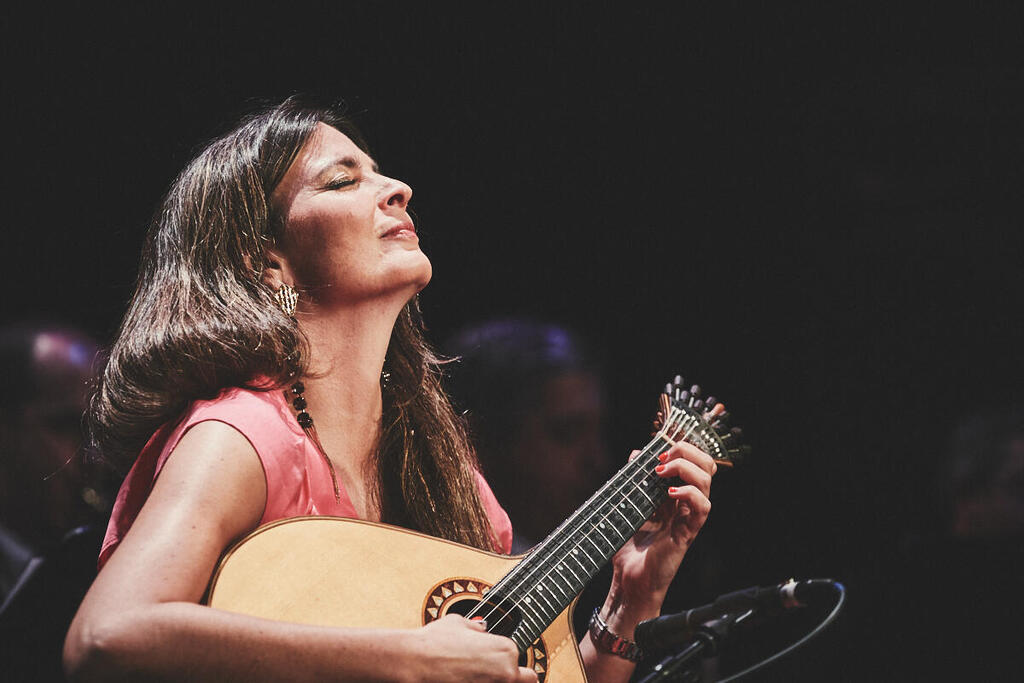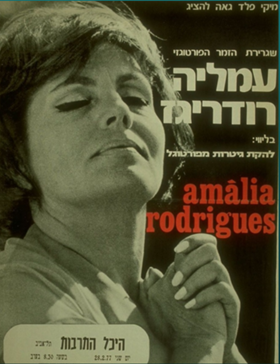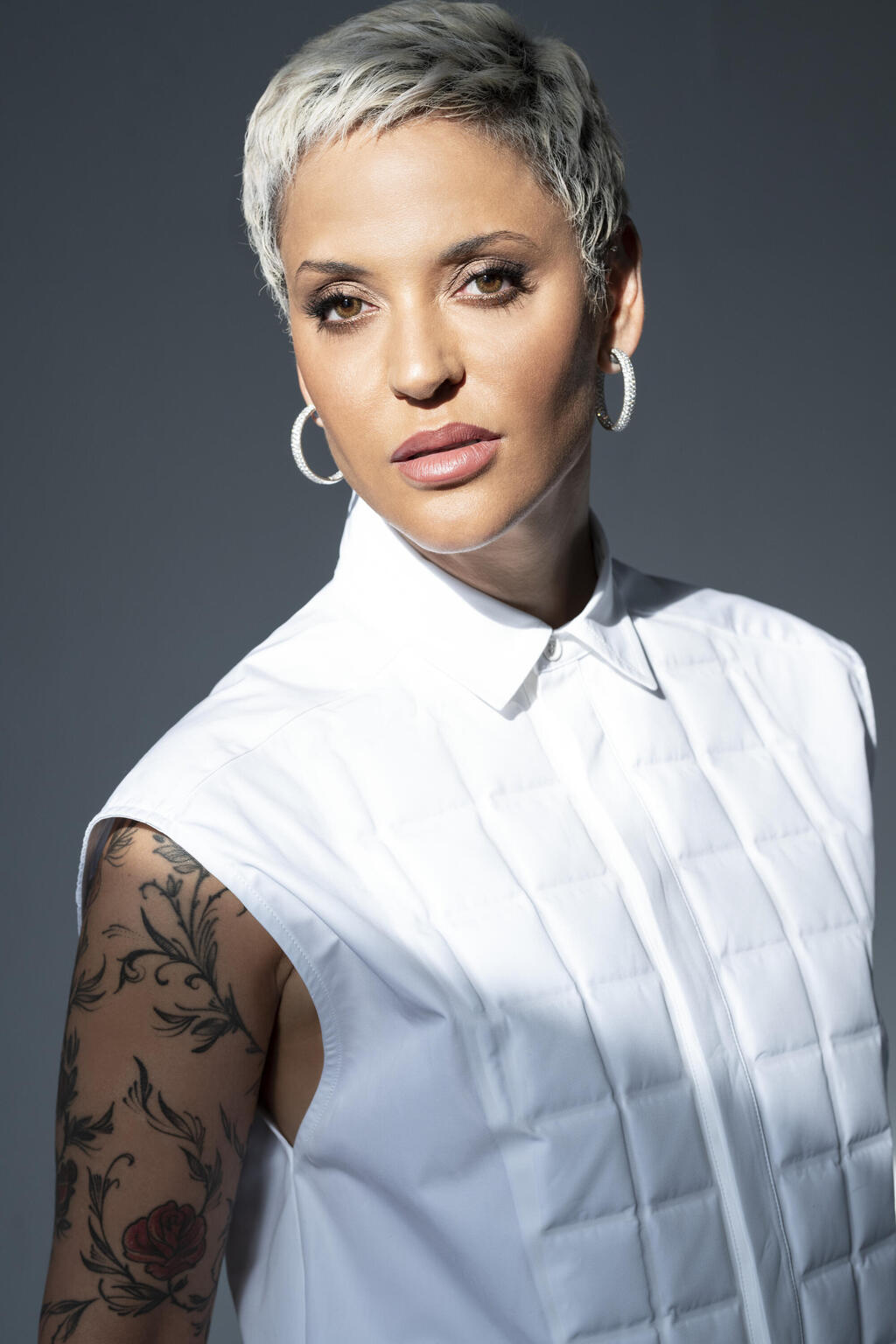Getting your Trinity Audio player ready...
The unique music genre of fado is full songs and melodies conveying cravings and longing so intense, it can be traced back to 1820s Lisbon.
Earlier this week, a fantastic fado guitarist finished a three-part concert series at the Studio Annette in Tel Aviv, and next month, two famous fado singers are expected to arrive in the Holy Land for another sting of performances.
One of these musicians is Mariza, a high-profile artist from Portugal, which is where fado first originated. This genre is well-versed in conveying love, heartbreak, longing for childhood, and destiny's deceit.
It masterfully creates the feeling of yearning, of longing for something that's long gone, be it a person, or a dream. It is no coincidence that fado was born in Portugal, a land of seamen and fishermen, where women used to cry and mourn their husbands and sons who got lost in the sea.
The first time I heard this genre was many years ago, as a child in the 1960s, during the concert of Amalia Rodrigues, the eternal queen of the genre.
From the concert itself, I don't remember anything, except the excitement of a superstar's presence. Indeed, Amalia was full of talent and had a charisma with a rare voice, as if she was blessed by God himself. This diva wiped off the dust from the vault where this music style had been hidden, and brought it into concert halls, spreading the word of the fado all over the world.
(Amalia Rodrigues sings "Cancao Do Mar")
Since Rodriguez's performance in Israel, I've been to dozens of fado concerts in Portugal. Including a performance by Celeste Rodriguez - her younger sister and also a fado singer, who made a name for herself. She performed until her very death at the age of 95.
But the most delightful fado songs I've ever heard weren't in big concert halls or at fancy clubs. On the contrary - they were heard on the street and in restaurants. Nowadays, there's no way of hearing fado music on the street. But on my first few visits to Portugal about twenty-five years ago, it was still possible.
In the tiny bars and restaurants of the Alfama neighborhood in Lisbon, then a poor worker's neighborhood and now a fancy tourist quarter, they used to sing fado at midday.
My spouse and I used to wander around the steep alleys of the neighborhood, and wherever we heard someone singing fado, we entered. And what a pleasure it was to sit down in a simple restaurant, to take a bite of white bread with cheese, and just listen to fado. The audience was mostly Portuguese, and so were the singers. They would sing two or three songs each, clearing the stage for the next one. It was a sort of contest for the small audience, which of course, knew every song and every word.
But even when you don't understand all the words, there's something in the distinctive tone of the fado that makes you feel the melody. The way the sounds come out of the throat, and the pause of the musical note at the end of every sentence - simply enchanting. This delay, typical for fado, produces a rhythm called tempo rubato - a slight speeding up and then slowing down of the tempo of a piece - which intensifies the drama.
Marta Pereira da Costa is a virtuoso fado guitar musician. In the past month alone, she managed to perform in Senegal, Brazil, and of course Portugal, and earlier this week at the Studio Annette in Tel Aviv.
Traditional Pado singers are accompanied by a unique fado guitar. It's a 12-string guitar with a pear box and a slug neck head and a sound similar to something in between an acoustic guitar and a mandolin. But Pereira da Costa plays the fado guitar as a solo instrument. It's a very unusual phenomenon in the fado world because of how dependent the genre is on a human voice.
Pereira da Costa represents what is known as Nueva Fado (the new fado). This music genre is based on fado, but it also involves other genres such as Flamenco, Bossa Nova, and Jazz.
The new fado evolved over the last 20 years, while the traditional fado withered at the end of the last century. The new fado singers breathed life into the old genre by adding fresh elements from other genres. Besides the guitars, they added other instruments such as accordion, viola, and even a piano. However, each of them continues on his own path, as they base their new genre on the old fado.
As part of her concert in Israel, Pereira da Costa performed with a singer named Duarte Coxo, who sang new fado songs, but in the traditional old style.
With that said, next month, Mariza - who looks to be the most well-known Portuguese singer in the world at the moment - is set to arrive in Israel for the first time in eight years. Her concert will be held on June 27 at Hall of Culture in Tel Aviv, and it will be an Amalia Rodrigues tribute concert. It would be interesting to hear how Mariza - the very representative of the new fado - will sing Rodrigues's compositions.
I first heard the name Mariza from a cab driver in Portugal 20 years ago. He picked us up near the Pado Club in Quimbera, and said in contempt something like, "If you want to hear real fado, listen to Mariza."
So we bought a CD, and it was absolutely amazing. Over the years, Mariza moved away from the fado and got closer, perhaps too much, to pop. But her contribution to the genre's awakening is priceless.
The third fado performer who will grace the Israeli stage this summer is Sara Correia, who is set to be among the artists to take the stage on June 14 at Méditerranée Festival Ashdod 2022, which annually hosts the best artists from Israel and well-known guests from the Mediterranean countries.
Correia is a young singer with a strong and deep alto voice, who is continuing the traditional path of the genre. She is an exciting singer and her performance is set to be very intriguing.
In the meantime, not long ago, while visiting the northern city of Porto, we found ourselves caught up in a local fado competition, with mostly young singers. Fado on the street is something I haven't seen in years in Portugal, and this little event was a living proof that fado is still alive and kicking.




